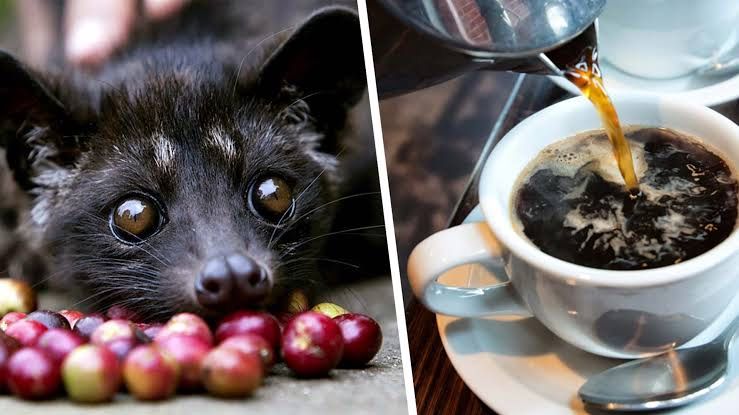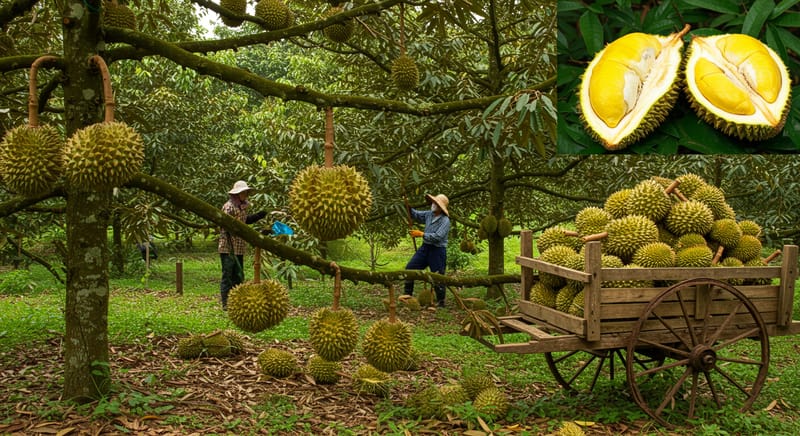The Pinnacle of Taste: Discovering the World's Most Premium and Expensive Coffees
Coffee, the aromatic beverage that awakens our senses and fuels our days, has been adored globally for centuries. The craft of coffee cultivation and brewing has evolved significantly over time, with some methods and blends reaching astonishing value and exoticism. Today, let's venture beyond the confines of your

Coffee, the aromatic beverage that awakens our senses and fuels our days, has been adored globally for centuries. The craft of coffee cultivation and brewing has evolved significantly over time, with some methods and blends reaching astonishing value and exoticism. Today, let's venture beyond the confines of your local coffee shop and explore the world's most expensive and highly sought-after coffees: Kopi Luwak, Black Ivory, and Geisha coffee.
Kopi Luwak: The Intriguing Alchemy of Nature's Most Expensive Coffee"
In the dense forests of Southeast Asia, an unassuming animal plays an instrumental role in the production of the world's most expensive coffee – Kopi Luwak, also known as Civet Coffee. The Asian Palm Civet, a small, cat-like creature, contributes to creating a cup of coffee that is as exotic as it is controversial.
A Curious Culinary Collaboration
The journey of Kopi Luwak starts with ripe coffee cherries, which are eaten by the Asian Palm Civet. The civet’s digestive system plays a crucial role in the production process; while it digests the cherry's pulp, it leaves the coffee beans intact. As the beans travel through the civet's digestive tract, enzymes in the civet's stomach ferment the beans, altering their protein structure and enhancing their flavor profile.
Once excreted, the beans are collected by farmers from the forest floor. They are meticulously cleaned, sun-dried, lightly roasted to retain their unique flavor, and then ground into coffee.
An Unmatched Flavor Profile
Kopi Luwak is prized for its distinctive taste and aroma. The civet’s digestion process imparts a smooth, caramel-like flavor to the coffee, with a noticeable absence of bitterness. It is often described as full-bodied and rich, with hints of jungle fruits, a testament to the diet of the civet. It also has an earthy and musty character, an aromatic signature of the civet's unique contribution.
The Price of Rarity
The distinctive flavor and the laborious, time-consuming process of gathering and cleaning the beans contribute to the exorbitant price of Kopi Luwak. With only a small amount of this coffee produced each year, its scarcity is also a significant factor in its cost. This exotic brew can range from $100 to $600 per pound, with a single cup costing anywhere from $35 to $80.
A Taste Wrapped in Controversy
Despite the allure of its unique taste, Kopi Luwak has been mired in ethical controversies. Criticisms arise from practices where civets are caged and force-fed coffee cherries for mass production. In response, several producers have implemented ethical sourcing methods, ensuring that they only collect beans from wild civets, thus encouraging animal-friendly practices.
The world of Kopi Luwak coffee is fascinating, filled with an intriguing blend of natural biology, meticulous artisanal craft, and a contentious ethical debate. For those seeking a taste of the extraordinary, and are conscious of sourcing ethically produced beans, Kopi Luwak offers an unparalleled coffee experience that stretches beyond the norms of traditional coffee cultivation.
Black Ivory Coffee: An Exploration into the Elephantine Elixir of Luxury
In the lush hills of northern Thailand, an unlikely collaboration between man and elephant gives birth to one of the most expensive coffees in the world - Black Ivory Coffee. This luxurious brew's unique production process and scarce availability catapult it to the forefront of coffee extravagance.
The Elephantine Process
The saga of Black Ivory coffee begins with Thai Arabica beans, which are consumed by elephants as part of a mixture of coffee cherries and a diet of other fruits. The coffee cherries undergo a natural fermentation process as they pass through the elephant's digestive system. During this time, enzymes in the elephant's stomach break down the coffee's proteins, which are responsible for bitterness, thus leading to a smoother cup of coffee.
Once the coffee cherries have been naturally processed by the elephants, the beans are diligently collected from their dung. After a thorough cleaning, the beans are sun-dried and hand-roasted in a process that carefully preserves their unique flavors. They are then ready to be brewed into Black Ivory coffee.
An Unforgettable Flavor Profile
Black Ivory coffee is celebrated for its unique, complex flavors. The elephant's digestive process imparts distinct qualities to the coffee, resulting in a brew that is exceptionally smooth and robust, with a flavor profile described as earthy, floral, and chocolatey with hints of tamarind and spice. It is also known for its lack of bitterness and an aromatic quality that lingers on the palate.
The Luxury of Scarcity
The high price point of Black Ivory coffee is largely attributed to its rarity. Producing this coffee is a labor-intensive process, and the output is incredibly low. The elephants' digestive process and the meticulous collection of beans result in a yield of only around 1% of the total beans consumed. This scarcity, combined with the unique production method, results in a price of around $500 per pound.
Ethics and Sustainability
Unlike the controversial Kopi Luwak, Black Ivory Coffee production is regarded as an ethically sound process. The elephants involved are not harmed, and the coffee cherries consumed are a part of their regular diet. The production of Black Ivory Coffee also contributes to the welfare of elephants in Thailand, supporting their care, veterinary needs, and overall well-being.
The journey into the world of Black Ivory Coffee is as enchanting as the coffee itself. It reveals an extraordinary relationship between elephants and coffee growers, bringing to light the ingenuity of a process that transforms simple coffee cherries into a high-end luxury brew. For those with a taste for the unusual and a desire for ethically produced goods, Black Ivory Coffee promises an unforgettable sensory experience.
Panama Geisha Coffee: The Rare Aromatic Elixir of the Coffee World
In the world of coffee connoisseurs, the name Geisha (or Gesha) carries with it an air of mystique and reverence. Nestled in the highlands of Panama, this variety of coffee is celebrated as one of the most expensive and highly sought-after coffees in the world.
An Ethiopian Heirloom in Panama
The Geisha coffee variety traces its roots back to Ethiopia, its country of origin. However, it was in the rich, volcanic soils of Panama that the Geisha plant found its true calling. The cool, misty climate and the fertile soils of Panama's Boquete region provide an ideal environment that allows the Geisha beans to develop their unique flavor profile.
A Symphony of Flavors
Panama Geisha coffee is revered for its extraordinary taste and aroma. It possesses a light, tea-like body and vibrant acidity, unlike most other coffee varieties. Its complex flavor profile carries distinct floral and jasmine notes with undercurrents of tropical fruits such as mango and peach. Some enthusiasts even detect hints of bergamot and citrus, making for a truly unique tasting experience.
The Geisha’s delicate flavors are best showcased by lighter roasts and are ideally suited for manual brewing methods such as pour-over or French press, allowing the subtle, complex notes to shine through.
The Exclusivity of Geisha Coffee
The scarcity of Panama Geisha coffee adds significantly to its appeal and cost. The Geisha plants yield a low harvest, and the cultivation and processing require diligent care and attention to preserve its distinctive flavor notes. The beans are hand-picked at the peak of ripeness and processed with meticulous care to ensure their quality.
Furthermore, the demand for Geisha coffee has surged following its victory in several international tasting competitions, pushing the prices even higher. At auctions, prices can exceed $350 per pound, making it one of the world's most expensive coffees.
Sustainability and Fair Practices
Panamanian Geisha coffee is often grown on small estates that prioritize sustainability and fair practices. Many of these farms employ environmentally friendly practices and pay their workers fair wages, contributing to the sustainable development of the region.
The story of Panama Geisha coffee is a tale of serendipity, craftsmanship, and a relentless pursuit of flavor. This exquisite variety, with its unique flavors and high price, offers an unparalleled coffee experience that transcends the norms of traditional coffee drinking. It continues to captivate coffee enthusiasts worldwide with its floral bouquet and extraordinary lineage, underscoring that the best things in life, like a perfect cup of coffee, are worth savoring.




